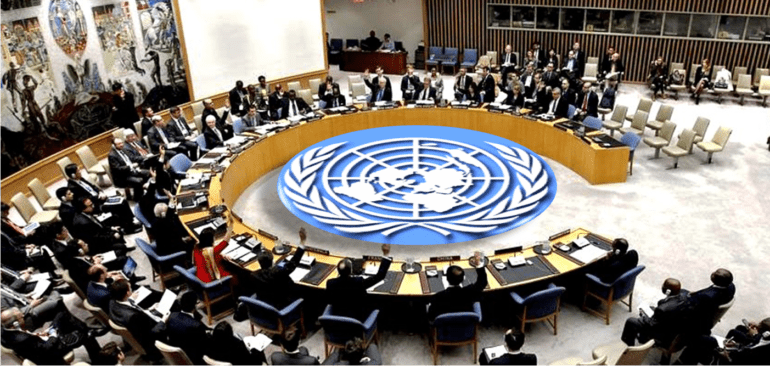TL;DR:
- The UN Security Council will hold a meeting on July 18 to discuss the potential threats posed by AI to global peace.
- The meeting will include briefings by international AI experts and Secretary-General Antonio Guterres, who has raised concerns about AI’s dangers.
- Guterres plans to establish an advisory board on AI and supports the idea of a UN agency on AI, similar to the International Atomic Energy Agency.
- The UK, as the council’s current president, aims to promote a multilateral approach to managing the opportunities and risks of AI.
- AI has significant benefits, including aiding UN development programs, humanitarian aid operations, peacekeeping efforts, and closing the gap between developing and developed countries.
- However, there are serious security concerns associated with AI, leading Europe to lead efforts in regulating the technology.
- OpenAI CEO Sam Altman and UK Ambassador Woodward emphasize the need for government intervention and the establishment of licensing agencies to enforce safety standards for powerful AI systems.
- The Security Council meeting chaired by the UK Foreign Secretary will provide a platform for expert opinions and discussions on AI’s implications.
- The UK plans to host a global AI summit later this year for a comprehensive multilateral discussion.
Main AI News:
In a bid to tackle the potential threats posed by artificial intelligence (AI) to global peace, the United Nations (UN) has called for a crucial meeting on July 18. The meeting, announced by UK Ambassador Barbara Woodward, serves as a centerpiece of the UK’s presidency of the council this month. Esteemed international AI experts, along with Secretary-General Antonio Guterres, will provide insightful briefings during the session. Guterres, who recently expressed concern over the alarming advancements in AI, likened its potential dangers to the risks associated with nuclear warfare.
The UN chief highlighted the urgent need for action, emphasizing the concerns raised by scientists and experts who deemed AI an existential menace to humanity. To address this pressing issue, Guterres revealed plans to establish an advisory board on artificial intelligence in September, aiming to develop initiatives that can be implemented by the UN. Additionally, he expressed openness to the idea of creating a UN agency dedicated to AI, drawing inspiration from the knowledge-based and regulatory powers of the International Atomic Energy Agency.
Woodward, in her statement, emphasized the importance of a collaborative approach in managing the vast opportunities and risks presented by artificial intelligence. Stressing the need for a global effort, she underscored the tremendous benefits that AI offers, such as supporting UN development programs, enhancing humanitarian aid operations, and aiding peacekeeping endeavors. Woodward also acknowledged AI’s potential to bridge the gap between developing and developed nations through data collection and analysis.
However, Woodward did not shy away from acknowledging the serious security concerns that arise from AI. Europe, at the forefront of AI regulation, has been proactive in addressing this issue. The European Union (EU), recognizing the urgency, recently approved the world’s first comprehensive set of rules for AI, a significant milestone in reining in this powerful technology. Even the CEO of OpenAI, the company behind ChatGPT, emphasized the critical role of government intervention in mitigating the risks associated with increasingly potent AI systems. OpenAI’s CEO, Sam Altman, proposed the establishment of a licensing agency, either at a national or global level, to monitor and enforce safety standards for the most powerful AI systems.
The Security Council meeting, chaired by UK Foreign Secretary James Cleverly, presents a crucial platform for the 15 council members to engage in discussions on the implications of AI. With AI being a rapidly developing and transformative technology, the meeting aims to gather expert opinions and initiate meaningful conversations. In line with these efforts, UK Prime Minister Rishi Sunak has announced that the UK will host an AI summit later this year, providing a truly global and multilateral forum for in-depth discussions on the subject.
As the international community grapples with the risks and rewards of AI, the UN Security Council’s meeting signifies a significant step towards fostering a collective response to this emerging technological landscape. By prioritizing collaboration, informed decision-making, and proactive regulation, nations strive to strike a delicate balance between harnessing AI’s potential and safeguarding global security.
Conclusion:
The UN Security Council’s focus on addressing the risks of artificial intelligence highlights the growing concerns within the international community. The meeting signifies a recognition of the need for global collaboration in managing both the potential benefits and the serious security implications of AI. As governments and regulatory bodies take proactive steps to establish guidelines and safety standards, the AI market can expect increased scrutiny and regulatory measures. Organizations operating in the AI sector will need to navigate evolving regulations and demonstrate a commitment to ethical and responsible AI practices to maintain public trust and ensure market stability.

